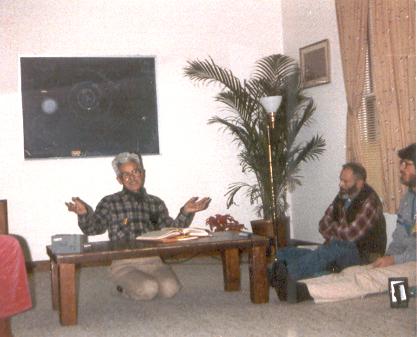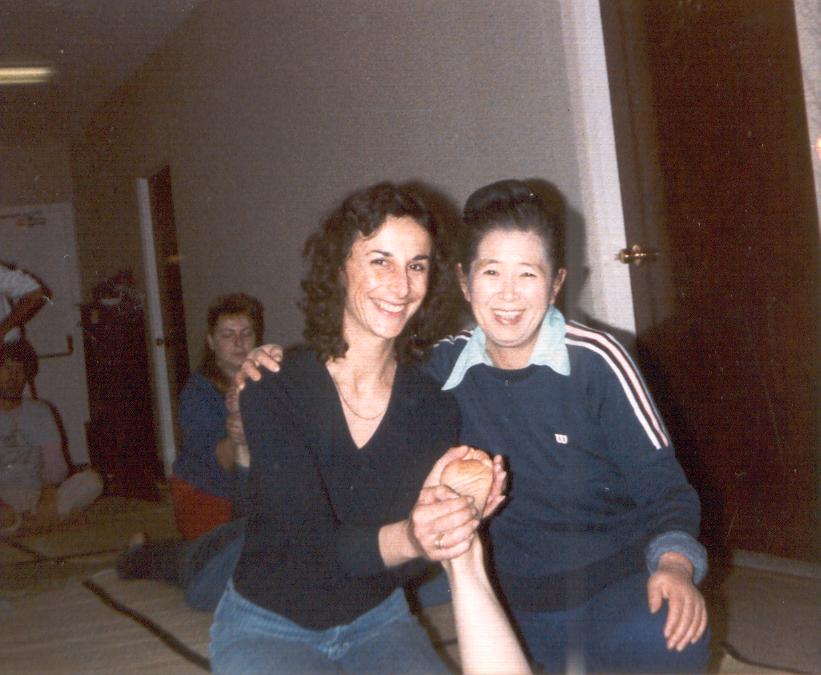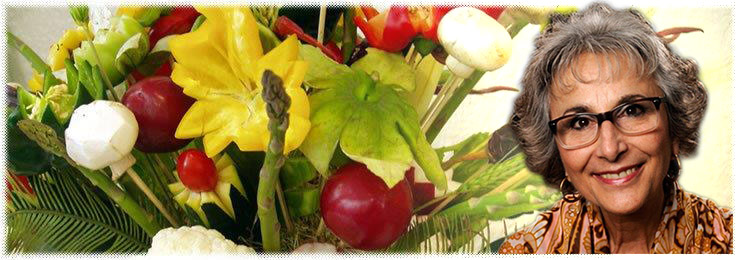| Welcome to my web site: www.wahema.de
Welcome to my web site: walburga's health management
"I find it quite unfortunate that most of us are not thinking about our health
until we are already chronically ill or even have to face a life threatening disease."
Then we run to Doctors and hope "they" can cure us.
What about ourselves? What can we do to stay well or get on the road to better health?
Did you ever ask this yourself?
Research has shown that we can reduce the risk of getting cancer by 1/3 just by living a healthy lifestyle.
It is not that difficult to add health promoting foods and activities to our health account. And it is much easier on our wallet than it will be once we are sick and battle a disease like cancer.
Published for the yearly World Cancer Day on February 4, 2013 we can read:
"Currently, 7.6 million people die from cancer worldwide every year, out of which, 4 million people die prematurely (aged 30 to 69 years).i So unless urgent action is taken to raise awareness about the disease and to develop practical strategies to address cancer, by 2025, this is projected to increase to an alarming 6 million premature cancer deaths per year."
(Ref: Press release, Union for International Cancer Control 'UICC' 2013-Feb-04)
The message from the American Institute of Cancer Research (AICR) was posted via Facebook:
"Cancer is costly. Prevention is not." and the message continued: "
SHARE and LIKE this image to help spread the message that 1 in 3 cancers could be prevented."
(Ref. AICR 2012-07-30)
"Foods Can Fight Cancer Both Directly
and Indirectly" That is why AICR recommends filling at least 2/3 of your plate with vegetables, fruit, whole grains and beans.
http://www.aicr.org/foods-that-fight-cancer/#.UG3brjPjGsw.facebook
The National Institute of Health (NIH) talks about "Digging a Vegetarian Diet" and shows why
"Plant-Based Eating Can Reap Rewards".
(Ref. NIH 2012-07)
The American Cancer Society Guidelines states the following on Nutrition and Physical Activity on Cancer Prevention:
"One-third of all cancer deaths in the United States each year are linked to diet and physical activity, including being overweight or obese, while another third is caused by tobacco products."
(Ref. ACS 2012-01/02)
"From epidemiological evidence on physical activity to lab studies on phytochemicals, research over the last 30 years has revealed how we can reduce our risk of many cancers and insights into why.
Early evidence from cohort studies painted a picture:
Individuals who consumed large quantities of fruits, vegetables and other plant foods
were at decreased risk of developing several chronic diseases, including cancer."
(AICR ScienceNow 39, Winter 2012:Special Anniversary Issue)
Off the press for the World Cancer Day February 4, 2012: "Number of US Cancer Cases Expected to Rise 55 Percent Higher by 2030 …" The good news: " … But Healthy Changes Today Could Prevent Over 740,000 Cancers Tomorrow" and after talking about the number of predicted cancer cases, the American Institute of Cancer Research qoutes again: "The message is clear: The time to take action is right now. The small, everyday healthy changes we make today will mean fewer cancers tomorrow."
(Ref. AICR press release February 1, 2012)
"What we eat and how much we eat matters. Our risks for developing diseases such as cancer, coronary heart disease, diabetes and other health problems are directly affected by the foods we eat."
(Ref. AICR 2011-11)
The yearly World Cancer Day's 2010 Campaign says: "Cancer can be prevented too"
(Ref.
2010 UICC World Cancer Campaign)
The Cancer Research Update November 2011 talks again in "Science in the Spotlight"
about
"AICR's Food that fight cancer". The research shows: "The benefits of a plant-based diet are that it combines the cancer-protective phytochemicals and nutrients along with helping you get to and stay a healthy weight."
(Ref. AICR 2011 Issue 83)
“According to a recent American Institute of Cancer Research survey, nearly 50 percent of Americans remain unaware that research now shows there are simple, basic lifestyle steps people can take to lower their cancer risk,” said AICR Director of Research Susan Higginbotham, PhD, RD. “Yet these same steps will help them reduce their risk for the number one chronic disease in this country: cardiovascular disease.”
(Ref. AICR 2010-02 issue 36 )
Published in the medicalnewstoday.com during breast cancer awareness month 2010:
Study confirms Breast-Healthy Lifestyle Worthwhile
"It's important to note that a family history of breast cancer can arise in part due to shared unhealthy behaviors that have been passed down for generations," Gramling said. "Untangling the degree to which genes, environments, and behaviors contribute to the disease is difficult. But our study shows that engaging in a healthy lifestyle can help women, even when familial predisposition is involved."
(Ref. medicalnewstoday.com October 12, 2010)
Here is what the American Institute of Cancer Research (AICR) says:
"Five to ten percent of cancer cases are attributed to the presence of an inherited gene mutation (“cancer gene”). Although an inherited gene flaw increases a person's cancer risk, it does not guarantee that a person will develop cancer. A person's diet, lifestyle and environment have much more influence."
(Ref. AICR 2007-11)
"News" like the above, I heard already in a lecture by Dr. Francisco Contreras in 2004 while I was visiting the Oasis of Hope Clinic in Tijuana. I had taken notes of the answer he gave to one of the questions asked by someone about what role the genetics play in getting cancer. Or how much we are influenced by the genes we "inherited". His answer was: "the problem what might have been passed down to us is not so much the bad genes, but the lifestyle and cook books we inherited are the bigger problem." I heard this explanation the first time. But later over the years I read and hear about this fact from different well known and reputable sources.
Health management is very dear to me. The reason is my own "real life health story" which I like to share with you. You can see why it makes a lot more sense to take personal responsibility for our health at any time. Yes, we can change our less healthy habits to more health promoting habits, it is not that difficult. And yes, we do have choices of what we eat and we do have choices of what we do! The matter of "what we think" is more difficult to deal with. But nevertheless the thoughts which are present in our mind need to be dealt with and sorted out.
As a cancer patient I needed to move forward to become a cancer patient advocate. I have intensely researched and continue to learn about the connections between health and health supportive lifestyles as well as less desirable lifestyles in connection with disease - especially cancer. It is my intention to increase our awareness of the importance of primary prevention. Primary means prevention while we are healthy. The importance lays in good nutrition for body, mind and soul. We have to decide on and integrate healthy lifestyle habits:
Stress management, adequate daily exercise,
and a colorful nutrient-dense diet loaded with a big variety of antioxidants.
With this in mind, here some food for thought.
How are you today?
Are you enjoying or even better, loving your job, your career?
Are you feeling good in your work environment?
Are you feeding your body and mind health supporting foods?
What kind of foods do you invest in your physical health?
What kind of foods do you invest in your emotional and spiritual health?
What is your passion?
Are you taking enough time out for yourself and your inner circle?
Can you give spontaneous and honest answers to all of the above questions?
Will the answers be different if you take extra time exploring the questions?
Have you set goals you want to reach?
What needs to be done to reach these goals?
To maintain your health? To give your life balance? To optimize your health?
Are you already doing anything specific to keep or increase your health status?
If you answered "yes" then you earn yourself some +plus points.
Is this intention being implemented and consequently followed through?
If you answered "yes" then you get more +plus points.
This means you know that good health is not something to be taken for granted
but rather a constant striving to maintain or optimize it.
Congratulations!
If you answered "no" to some of the above questions, then now is the time to begin.
On my website you find information about a general "healthy lifestyle", including the meaning of prevention,
plain facts
and some health related scientific research.
You also can read about my diagnosis of advanced cancer during pregnancy, 25++ years ago. I share with you how
I coped with it and the important decisions I had to make in order to add more
and more
+plus points to my very troubled health account.
There are many factors which influence health and illness. We have no control over some factors like genetic makeup. We do however have control over our lifestyle. We are choosing the foods we buy. We are choosing how to prepare it. We are choosing what to drink every day. We are choosing to get or not to get adequate exercise in our day. And we are choosing if we rather stay on the couch with the TV control next to us and coke, beer and chips in our hands during our usual free time. We also are choosing to make sure to get enough time for our body and mind to relax and thus balance our state of well-being. These are all choices we can make. In plain words:
If we want to stay healthy we need to take charge of our life!
And yes, change can be very difficult in whatever situation we are in. Even if it is painful, sometimes it seems comforting to stay where we are. But we need to develop the habit of discipline to make good, healthy choices regularly.
The AICR Cancer Research Update 2011 during Octobers Breast Cancer Awareness Month talks about eating habits. The subject: "20 years of Eating"
"Wanting to keep our favorite foods and seeing no reason to change what we eat are the top reasons why Americans are not doing more to achieve a healthful diet and good nutrition, according to a new national survey released last week."
The findings are part of The American Dietetic Association's 20th national survey on consumer nutrition trends. Although from 1997 through today, percentages varied as to the reasons for not eating healthier, overall trends remained the same. The third highest ranked reason was that it takes too much time to keep track of their diet.
This again is sad news.
From experience I can say that it needs less effort and less money to maintain health than to regain health.
I invested a lot of time and money in learning and using the tools to reach balanced health. Among my teachers were the well known Sensei Herman Aihara and his wife Cornelia of the Vega Institute in Northern California as well as Sensei Noboru Muramoto.
 |
 |
I have personally studied with them the principles of Macrobiotics, the Yin Yang philosophy of life balance and the balance of nutrition. Both, Herman and Sensei Noboru were students of the well known George Oshawa.
The classes included preparing and cooking delicious, nutritious fresh foods as well as
the preparation and external application of foods, herbs and oils. The study also included stress reducing techniques to round it all up. Other ways of meditation called visualization I learned in the 80th in California from the well known author and Medical Oncologist Dr. O. C. Simonton. His latest workshop I attended in May 2007 and 2009 in Heidelberg, Germany during a large International Holistic Medical Convention.
I am so very grateful to have been able to learn this much in my life and to share the knowledge and the experience with people like you.
From the bottom of my heart I share with you the lessons I have learned:
Invest in your health, otherwise one day you might be paying with it!
Thank you for visiting my homepage.
Check out the "links plus+" where you can find recommended links, products and books I am affiliated with.
Take time to enjoy family, friends and nature.
Life does offer a lot of beautiful things. We just have to open our heart to feel and see them.
God bless you and yours!
Walburga
Notice: This is solely an excerpt of my story. It is not in any way intended for you to follow what I did. If you or a family member does have health problems or you think you might have health problems, consult a health care professional of your choice.
(Latest Update December 2015)
to the top |

